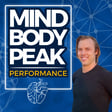
How 500,000+ People Are Hacking Stress, Focus, & Sleep Using EEG, Neurofeedback, HRV & More | Ariel Garten @ Muse
How are 500,000 people using neurofeedback to hack their sleep, stress & focus without relying on stimulants or wearables?
Ariel Garten, neuroscientist & Muse co-founder, breaks down how EEG & FNIRS technology tracks brainwaves in real time to guide meditation, sharpen focus, & deepen sleep. This episode reveals how brain training stacks up against smart rings, & why heart rate variability, digital sleeping pills, & prefrontal cortex tuning matter more than ever.
Meet our guestAriel Garten is a neuroscientist & former psychotherapist who co-founded Muse, the brain-sensing EEG headband that’s helped over 500,000 users reduce stress, sleep better & improve meditation.
She’s passionate about making brain health accessible through innovative tech that empowers people to take control of their mental well-being. Ariel is also a sought-after speaker, known for bridging science, technology & human potential.
Thank you to our partners- Outliyr Biohacker’s Peak Performance Shop: get exclusive discounts on cutting-edge health, wellness, & performance gear
- Ultimate Health Optimization Deals: a database of of all the current best biohacking deals on technology, supplements, systems and more
- Latest Summits, Conferences, Masterclasses, and Health Optimization Events: join me at the top events around the world
- FREE Outliyr Nootropics Mini-Course: gain mental clarity, energy, motivation, and focus
- Learn how different brainwave types (delta, theta, alpha, beta, gamma) relate to your state of mind & focus
- Prioritize quality sleep, sunlight, food & loving connections as non-negotiables for long-term brain health
- Use clinical-grade EEG for real-time insight into brain activity as it’s more accurate than wrist or ring wearables
- Speed up meditation progress with tech that provides real-time feedback on attention & focus
- Train sleep quality with biofeedback tools like the digital sleeping pill that guide the brain into deeper sleep & track stages
- Support relaxation & boost brainwave coherence for calm focus through heart rate variability & controlled breathing
- Build cognitive flexibility through regular brain training & meditation to improve adaptability & focus recovery
- Boost brain oxygenation, endurance & prefrontal cortex performance through physical exercise
- Prioritize recovery especially sleep & relaxation, for brain growth & post-training performance
- Stay flexible by adapting meditation, exercise & brain training schedules to life’s changing demands
5:30 How Muse Made Clinical-Grade Neurofeedback Accessible at Home
9:25 Use Cases for Neurofeedback & Brain Training
27:07 Connection Between HRV, Vagus Nerve, & Brainwave Activity
37:58 Designing a Minimalist Muse Protocol for Daily Use
1:02:26 Addressing Myths & Misconceptions in Cognitive Training
Links- Watch it on YouTube: https://youtu.be/Y1OuaYFXXdo
- Full episode show notes: outliyr.com/215
